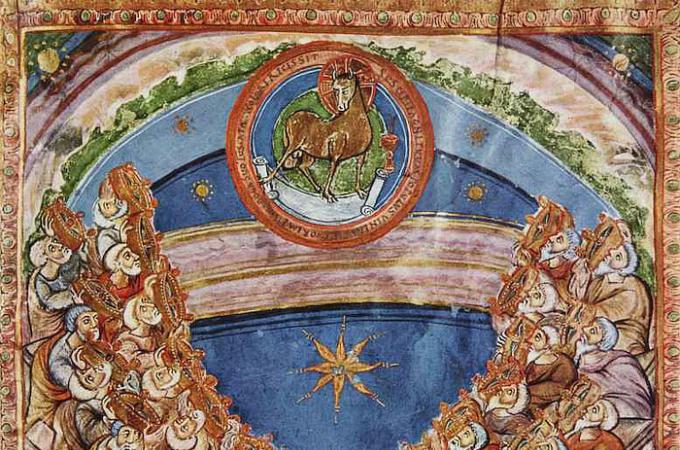Meaning of 'world without end'
Q. I enjoy reading your column in our archdiocesan newspaper, The Criterion, and I am hoping that you can help with something I have always wondered about: Why, at the end of the "Glory be to the Father," do we say "world without end"? (Indianapolis)
A. Your question serves as a good reminder of how unreflectively we often pray. I have been saying the "Glory be to the Father" prayer for 70 years, and it had never occurred to me to think about the confusion that the words "world without end" might cause.
Actually, the phrase refers not to the physical universe as we know it; it is simply an idiom, a poetic way of expressing the notion of eternity. What we are really saying is that the glory of God and the praise owed to the Trinity are endless.
The phrase attempts to translate the Latin ending of many Mass prayers, "per omnia saecula saeculorum," which means, "through all ages upon ages."
In fact, some prayer books now render the prayer this way: "Glory be to the Father and to the Son and to the Holy Spirit, as it was in the beginning, is now, and will be forever. Amen."
Q. My husband was previously married and divorced. Back when we were engaged, we wanted to be married in the Catholic Church, but when we called my parish, the priest insulted us on the phone and said he doubted that he could marry us. So we got married by a justice of the peace, have now been married for 38 years and have raised our children as Catholic.
We still consider ourselves Catholic, have practiced the faith all these years and continue to be bothered by the fact that our marriage is not blessed by the Catholic Church. Recently, we found out that my husband's ex-wife passed away, and we are wondering how that affects our situation and our relationship with the church. (Baton Rouge, Louisiana)
A. First, I admire your continued loyalty to the church, and I apologize for the unkindness with which you were treated long ago. We priests need to take great care to be kind, because our words have a long life span.
Now, to your question: Assuming that this is your own first and only marriage (and I am sure that you would have told me otherwise), the solution is quite simple. You and your husband should arrange an appointment with a local priest, your husband bringing with him verification of his first wife's death.
(The surest way is a death certificate, although in many jurisdictions your husband would not be able to obtain that from a government agency since he was not her husband at the time of her death. In that case, a newspaper obituary or a letter from the funeral home would almost certainly suffice.)
The priest will speak with you as to what preparation might be needed for him to bless (technically, "convalidate") your marriage in the Catholic Church. This preparation would include you and your husband receiving the sacrament of penance with a priest of your own choosing.
The marriage ceremony would likely be a very simple one, with some appropriate scriptural readings; you and your husband, in the presence of two witnesses, would then repeat your marriage vows in front of the priest and the priest would pronounce a prayer of blessing over the marriage.
Some dioceses might require that the priest submit paperwork in advance to the diocesan office for a quick approval.
- - -
Questions may be sent to Father Kenneth Doyle at askfatherdoyle@gmail.com and 30 Columbia Circle Dr. Albany, New York 12203.
- Father Kenneth Doyle is a columnist for Catholic News Service



















